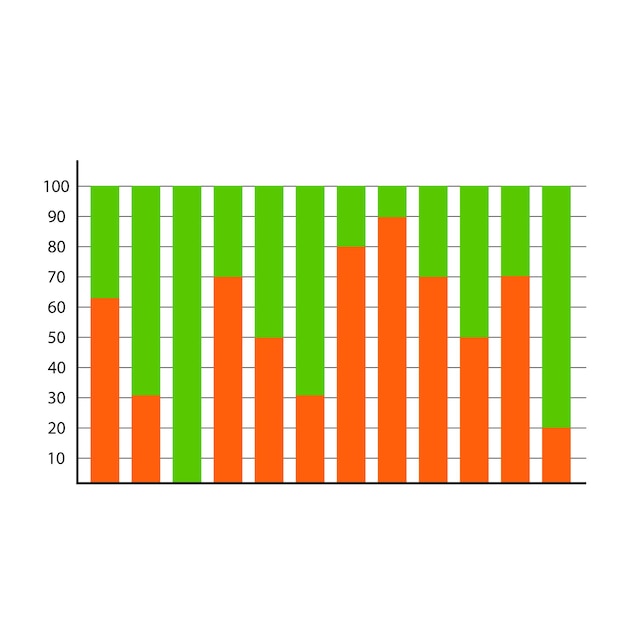The Ultimate Guide to Credit Reports and Improving Your Score

The ultimate guide to understanding credit reports and improving your credit score provides actionable steps for navigating credit reports, understanding credit scoring models, and implementing strategies to boost your creditworthiness effectively.
Are you looking to take control of your financial future? Understanding your credit report and knowing how to improve your credit score is crucial. This the ultimate guide to understanding credit reports and improving your credit score will provide you with the knowledge and tools necessary to achieve your financial goals.
Why Your Credit Report Matters
Your credit report is more than just a record of your borrowing history; it’s a key indicator of your financial health. It influences various aspects of your life, from securing loans to renting an apartment. Understanding its importance can empower you to make informed financial decisions.
How Credit Reports Impact Your Life
Credit reports play a significant role in many areas beyond just getting a credit card. They affect your ability to access loans, secure favorable interest rates, and even influence your employment and housing opportunities. A good credit report can open doors, while a poor one can create obstacles.
Key Factors Influenced by Your Credit Report
Your credit report is reviewed by lenders, landlords, and even employers to gauge your reliability and risk. Some key factors influenced by your credit report include interest rates on loans, approval for rental properties, and even insurance premiums. Improving your credit report can lead to significant savings and opportunities.

- Loan Approval: Lenders use your credit report to assess your creditworthiness, which determines whether you qualify for a loan.
- Interest Rates: A better credit score often translates to lower interest rates on loans and credit cards, saving you money over time.
- Rental Applications: Landlords review credit reports to assess your ability to pay rent on time.
- Employment Opportunities: Some employers check credit reports as part of the hiring process, especially for positions with financial responsibilities.
In conclusion, your credit report is a pivotal document that impacts various aspects of your financial and personal life. Regularly monitoring and improving your credit report can lead to better financial opportunities and overall stability.
Understanding the Components of a Credit Report
A credit report contains a wealth of information about your credit history. Knowing what’s included in your credit report helps you understand how lenders view your creditworthiness. Each component provides a snapshot of your financial behavior over time.
Personal Information
This section includes your name, address, Social Security number, and date of birth. It’s crucial to ensure this data is accurate to prevent identity theft or errors. Any inaccuracies should be promptly reported to the credit bureaus.
Credit Accounts
This section lists all your credit accounts, including credit cards, loans, and lines of credit. It details the account types, credit limits, balances, payment history, and account status. Reviewing this section helps you identify any discrepancies or unauthorized accounts.
- Account Types: Revolving credit (credit cards), installment loans (mortgages, auto loans), and open accounts (charge cards).
- Credit Limits/Loan Amounts: The maximum amount you can borrow or the original loan amount.
- Payment History: A record of whether you’ve made payments on time, late, or not at all.
Understanding the components of your credit report allows you to identify areas for improvement and ensure accuracy. Regular monitoring and prompt correction of errors can significantly enhance your credit score and overall financial health.
Decoding Credit Scoring Models
Credit scoring models translate the information in your credit report into a three-digit number that represents your credit risk. FICO and VantageScore are the two most commonly used models. Understanding how these models work can help you optimize your credit behavior.
FICO Score
The FICO score is the most widely used credit scoring model. It evaluates various factors to assess your creditworthiness. Understanding the weight of each factor can guide your credit-building efforts.

VantageScore
VantageScore is another popular credit scoring model. It aims to provide a more inclusive and accurate assessment of credit risk. Knowing its unique attributes can help you understand different lenders’ perspectives.
- Payment History: Making on-time payments is the most important factor in both FICO and VantageScore models.
- Amounts Owed: Keeping your credit utilization low (the amount of credit you’re using compared to your total available credit) is crucial.
- Length of Credit History: A longer credit history generally results in a higher credit score.
Decoding credit scoring models empowers you to take control of your credit health. By understanding the factors that influence your scores, you can strategically manage your credit and achieve your financial goals.
Simple Steps to Improve Your Credit Score
Improving your credit score doesn’t have to be complicated. Simple, consistent actions can lead to significant improvements. Knowing which steps to take can help you achieve your desired credit score.
Pay Bills on Time
Payment history is the most important factor in your credit score. Set up automatic payments or reminders to ensure you never miss a due date. Consistent on-time payments demonstrate responsible credit behavior.
Lower Credit Utilization
Keep your credit utilization below 30%. This shows lenders you’re not over-reliant on credit. Paying down balances and keeping spending in check can improve your credit utilization ratio.
- Monitor Your Credit Report: Regularly checking your credit report allows you to identify and correct errors promptly.
- Become an Authorized User: If you have limited credit history, becoming an authorized user on a responsible person’s credit card can help build your credit.
- Avoid Opening Too Many Accounts: Applying for multiple credit accounts in a short period can lower your credit score.
Implementing these simple steps can lead to a significant improvement in your credit score. Consistent effort and mindful credit management are key to achieving long-term credit health.
Common Mistakes That Hurt Your Credit Score
Avoiding common mistakes is as important as taking positive steps to improve your credit score. These errors can have a significant negative impact on your creditworthiness. Being aware of these pitfalls can help you maintain a healthy credit profile.
Late Payments
Even a single late payment can lower your credit score. Setting up reminders or automating payments can help prevent this common mistake. Consistent on-time payments are essential for building and maintaining good credit.
Maxing Out Credit Cards
Using a high percentage of your available credit can negatively impact your credit score. Avoid maxing out your credit cards and aim to keep your credit utilization low. This demonstrates responsible credit behavior to lenders.
- Ignoring Errors on Your Credit Report: Failing to address inaccuracies on your credit report can lower your credit score. Regularly review your credit report and dispute any errors promptly.
- Closing Old Credit Accounts: Closing old credit accounts can reduce your overall available credit, potentially increasing your credit utilization ratio.
- Applying for Too Much Credit: Applying for multiple credit accounts in a short period can signal financial instability to lenders.
Avoiding these common mistakes can help you protect and improve your credit score. Being proactive and mindful of your credit behavior is crucial for long-term financial health and stability.
Maintaining Good Credit Habits for the Long Term
Building good credit is a marathon, not a sprint. Maintaining positive credit habits over the long term is essential for sustained financial health. Consistency and discipline are key to enjoying the benefits of a good credit score.
Regularly Monitor Your Credit Report
Make it a habit to check your credit report at least once a year. This allows you to identify and correct any errors promptly. Free credit reports are available from annualcreditreport.com.
Stay Consistent with Payments
Continue to make all payments on time, every time. This ongoing responsible behavior will reinforce your creditworthiness. Consistency is the foundation of a good credit history.
- Diversify Your Credit Mix: Having a mix of credit accounts, such as credit cards and loans, can positively impact your credit score.
- Keep Old Accounts Open: Maintaining old credit accounts can increase your overall available credit and improve your credit utilization ratio.
- Budget and Plan Ahead: Managing your finances effectively helps you avoid overspending and ensures you can meet your credit obligations.
By maintaining these good credit habits, you can enjoy the long-term benefits of a strong credit score. A solid credit history opens doors to better financial opportunities and greater overall financial well-being.
| Key Aspect | Brief Description |
|---|---|
| 🗓️ Payment History | Making on-time payments is crucial for a good credit score. |
| 💳 Credit Utilization | Keep your credit utilization below 30% to show responsible credit use. |
| 🧐 Monitor Reports | Regularly check your credit reports for errors and discrepancies. |
| 🚫 Avoid Mistakes | Avoid late payments, maxing out cards, and opening too many accounts. |
FAQ
▼
A credit report is a detailed record of your credit history. It includes information about your payment history, credit accounts, and any public records related to your creditworthiness. Lenders use this report to assess your credit risk.
▼
It’s recommended to check your credit report at least once a year. You can obtain free credit reports from each of the three major credit bureaus: Equifax, Experian, and TransUnion, through annualcreditreport.com.
▼
A good credit score typically ranges from 670 to 739 on the FICO scale. A score of 740 to 799 is considered very good, and a score of 800 or higher is considered excellent.
▼
Most negative items, such as late payments and collections, typically remain on your credit report for up to seven years. Bankruptcies can stay on your report for up to ten years, depending on the type.
▼
Credit utilization is the amount of credit you’re using compared to your total available credit. It’s calculated by dividing your outstanding balances by your credit limits. Keeping it below 30% is generally recommended.
Conclusion
Mastering the nuances of credit reports and effectively improving your credit score is a journey that requires dedication and informed action. By understanding the key components of your credit report, decoding credit scoring models, and adopting positive credit habits, you can take control of your financial future and unlock new opportunities.





